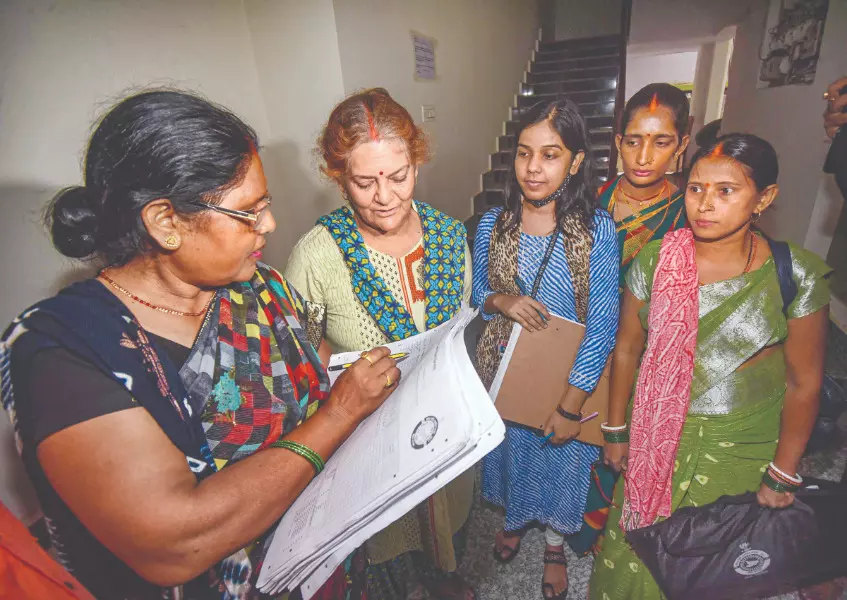Census with caste enumeration cleared after years of delay, political wrangling

NEW DELHI: In a surprise decision, the Centre on Wednesday announced that the caste census will be included in the next national census exercise in a “transparent manner”.
Making the announcement at a media briefing here, Union Minister Ashwini Vaishnaw said that a decision to this effect was taken at a meeting of the Cabinet Committee on Political Affairs, chaired by Prime Minister Narendra Modi.
“Cabinet Committee on Political Affairs has decided to include caste enumeration in the forthcoming census exercise,” he told journalists, adding that it will ensure that the society is economically and socially empowered and the nation progresses as well.
The census exercise was to begin in April 2020 but got delayed due to the Covid pandemic. Had the exercise been carried out as per the 10-year schedule, the report would have been published in 2021.
The Congress and other opposition parties have been vociferously demanding a nationwide caste census, making it a major election issue, and some states like Bihar, Telangana and Karnataka have conducted such surveys. Congress leader Rahul Gandhi has been campaigning to conduct a caste census for the past two years.
The BJP-led NDA government’s decision comes ahead of Assembly elections in Bihar, where several parties, including some BJP allies, have supported the caste census.
Ashwini Vaishnaw said the census comes under the purview of the Centre, but some states have done caste enumeration in the name of surveys “non-transparently”, which has created doubts in the society.
Noting that castes were not included in all census operations conducted since Independence, Vaishnaw alleged that the Congress governments have always opposed the caste census and that the party has used the issue as a political tool.
“Considering all these facts and to ensure that the social fabric is not disturbed by politics, caste enumeration should be transparently included in the census instead of surveys,” he said. The minister said it will strengthen the social and economic structure of our society while the nation continues to progress.
He alleged that the states ruled by opposition parties have done caste surveys for political reasons and emphasised that the Modi government has resolved to transparently include caste enumeration in the forthcoming pan-India census exercise.
“Better late than never,” Congress general secretary in-charge communications Jairam Ramesh said in a post on X, reacting to the Centre’s announcement.
He said the party had raised the issue in its resolution on social justice, which was passed in Ahmedabad on April 9, 2025, and also shared an April 16, 2023 letter of Congress president Mallikarjun Kharge to PM Modi in which he had demanded that the decennial census be carried out and a comprehensive caste census be made a part of it.
Union Home Minister Amit Shah welcomed the caste counting, referring to it as a “historic correction” during the tenure of Prime Minister Narendra Modi.
“In the CCPA meeting held today under the leadership of Prime Minister Narendra Modi ji a message of strong commitment towards social equality and rights of every section has been given by deciding to include a caste census in the upcoming census,” Shah wrote on X in Hindi. He alleged the Congress and its allies opposed the caste census for decades while in power and played politics over it while in the opposition. “This decision will empower all economically and socially backward classes, promote inclusion, and pave new paths for the progress of the deprived,” he said. Vaishnaw said in 2010, the then prime minister Manmohan Singh had assured the Lok Sabha that the matter of caste census should be considered in the Cabinet. A group of ministers was formed to consider this after most of the political parties had recommended a caste census.
“Despite this, the Congress government decided to conduct only a survey instead of a caste census. That survey is known as SECC. It is well understood that the Congress and its INDI alliance partners have used the caste census only as a political tool,” Vaishnaw alleged.
The first caste enumeration in independent India was conducted in 2011 and was known as the Socio Economic and Caste Census (SECC) 2011.
The census during British rule between 1881 and 1931 included caste enumeration, but post-independence the government decided in 1951 not to include caste in the census, except for SCs and STs.
Vaishnaw said that under Article 246 of the Constitution, the subject ‘census’ is listed in the Union list under entry 69 and according to the Constitution, the census is a Union subject.
He said the government’s decision reinforces its commitment to the values and interests of our society and country. “In the past, our government had introduced 10 per cent reservation for the economically weaker sections of the society without causing stress in any section of the society,” Vaishnaw said.
With the government deciding to conduct caste enumeration along with the decadal census, the focus is now on when the exercise will be carried out, as it has been already delayed by five years.
The census will be carried out “soon”, as a decision over whether to carry out the caste census or not was delaying the whole process, a senior government functionary said. The census will be carried out under the direct supervision of the Registrar General & Census Commissioner of India, an officer who reports to the Ministry of Home Affairs (MHA). The census operation continues to be on hold, and the government has not yet announced the new schedule.
In August 2024, Shah had said the census will be carried out at an appropriate time, and it will be announced when it is decided.



